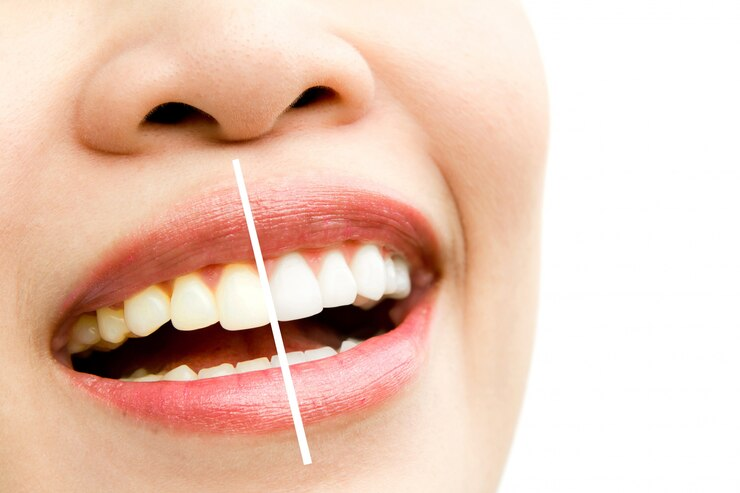What Are the Signs a Dermatologist Can Spot?
The skin is the largest organ of the body and often reflects overall health. Many underlying conditions first manifest on the skin, making dermatology an essential field in medical science. A Dermatologist in Silicon Oasis can identify various skin, hair, and nail concerns, helping individuals maintain healthy and vibrant skin. From common skin conditions to early signs of systemic diseases, a dermatologist plays a crucial role in diagnosing and managing skin-related issues.
Common Skin Conditions Identified by Dermatologists
Acne and Breakouts
Acne is one of the most common skin issues and can occur at any age.
A dermatologist can determine whether acne is hormonal, bacterial, or a result of other factors.
Proper treatment can help prevent scarring and long-term skin damage.
Eczema and Dermatitis
These conditions cause inflamed, itchy, and red skin, often triggered by allergens or irritants.
Dermatologists assess the type of eczema and provide suitable treatment to soothe symptoms.
Identifying triggers is crucial to managing long-term flare-ups effectively.
Psoriasis
Psoriasis leads to the rapid buildup of skin cells, causing scaly, itchy patches.
It is an autoimmune condition, meaning the body’s immune system attacks healthy skin cells.
Dermatologists help manage psoriasis through various treatments, including topical therapies and lifestyle modifications.
Skin Infections
Fungal, bacterial, and viral infections can affect the skin’s health.
Conditions such as ringworm, impetigo, and herpes require specialized treatments.
Dermatologists diagnose infections accurately and prescribe effective medication.
Early Signs of Serious Health Conditions
Skin Cancer
Dermatologists can detect early signs of skin cancer through routine check-ups.
Unusual moles, changes in skin pigmentation, and persistent sores can indicate skin cancer.
Early diagnosis significantly improves treatment outcomes.
Autoimmune Disorders
Conditions like lupus and scleroderma often present with skin-related symptoms.
Dermatologists can spot rashes, discoloration, or other warning signs of systemic autoimmune diseases.
Timely intervention helps manage these conditions effectively.
Diabetes-Related Skin Changes
Diabetes can cause dry skin, darkened patches, and slow-healing wounds.
Dermatologists identify these signs and suggest lifestyle modifications and medical advice.
Proper skincare helps manage diabetes-related skin issues and prevents complications.
Hair and Scalp Disorders
Hair Loss (Alopecia)
Hair thinning or bald patches may indicate hormonal imbalances, stress, or underlying conditions.
Dermatologists assess the cause of hair loss and suggest appropriate treatments.
Early intervention can improve hair regrowth and prevent further loss.
Dandruff and Scalp Psoriasis
Flaky and itchy scalp conditions can be due to dandruff, psoriasis, or seborrheic dermatitis.
Dermatologists identify the root cause and provide targeted treatments.
Maintaining scalp health is essential for healthy hair growth.
Nail Abnormalities and Their Indications
Brittle or Discolored Nails
Changes in nail texture or color can indicate fungal infections, vitamin deficiencies, or systemic diseases.
A dermatologist evaluates nail health to determine the underlying cause.
Proper care and treatment can restore healthy nail growth.
Clubbing and Spoon Nails
Clubbing (rounded nail tips) can be a sign of lung or heart disease.
Spoon-shaped nails may indicate iron deficiency or other health concerns.
Regular nail examinations can help detect these conditions early.
Skin Allergies and Reactions
Contact Dermatitis
Exposure to allergens or irritants can cause redness, swelling, and itching.
Dermatologists conduct patch testing to identify allergens.
Avoiding triggers and using prescribed treatments can prevent flare-ups.
Hives and Urticaria
Red, itchy welts on the skin often result from allergic reactions.
A dermatologist can determine the cause and recommend antihistamines or other treatments.
Managing triggers helps prevent recurrent outbreaks.
Cosmetic Concerns and Treatments
Hyperpigmentation and Uneven Skin Tone
Dark spots, melasma, and uneven skin tone can be caused by sun exposure, hormones, or aging.
Dermatologists suggest treatments such as chemical peels, laser therapy, or topical products.
Maintaining a skincare routine can help achieve an even complexion.
Wrinkles and Fine Lines
Aging, sun damage, and lifestyle factors contribute to wrinkles and skin aging.
Dermatologists offer anti-aging treatments, including fillers and skincare solutions.
Preventive measures like sun protection slow down skin aging.
Scars and Stretch Marks
Acne scars, surgical scars, and stretch marks can affect confidence.
Dermatologists provide solutions like microneedling, laser therapy, and topical treatments.
Proper skincare can reduce the appearance of scars over time.
Conclusion
A Dermatologist in Silicon Oasis can identify a wide range of skin, hair, and nail conditions, ensuring early detection and effective treatment. From common skin concerns to signs of systemic diseases, a dermatologist's expertise plays a vital role in maintaining overall health. Regular check-ups and early intervention can help prevent complications and promote long-term skin wellness.
FAQs
1. How often should I visit a dermatologist for a skin check-up?
It is recommended to visit a dermatologist annually for a routine skin check. However, if you notice unusual changes in your skin, hair, or nails, consult a specialist immediately.
2. What are the early warning signs of skin cancer?
Unusual moles, persistent sores, and changes in skin pigmentation can be early indicators of skin cancer. A dermatologist can perform a thorough examination to detect any potential issues.
3. Can a dermatologist help with hair loss?
Yes, dermatologists diagnose the causes of hair loss and recommend appropriate treatments such as medications, lifestyle changes, and specialized therapies to promote hair regrowth.
4. What are the signs of a serious skin condition that requires medical attention?
Persistent itching, sudden rashes, skin discoloration, or non-healing wounds are signs that should not be ignored. A dermatologist can assess these symptoms and provide the necessary treatment.




Comments
Post a Comment